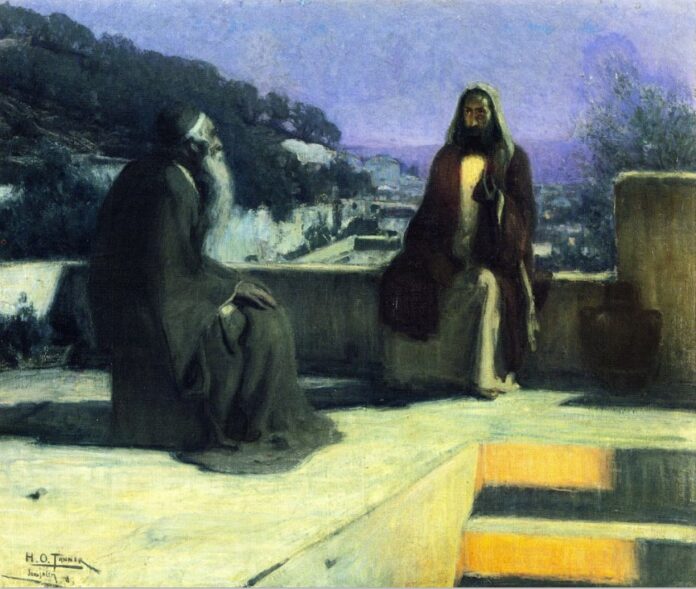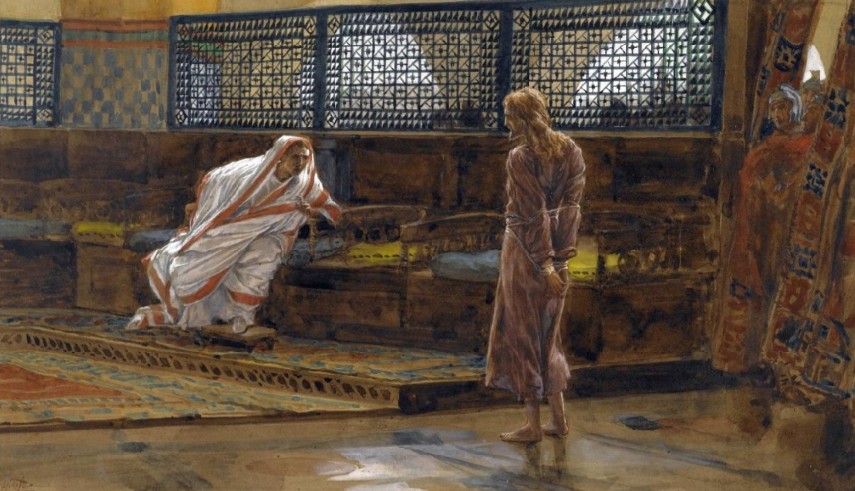Jesus stood before kings, rulers, synagogue leaders and scholars and never wavered. His truth cut through pretence. His compassion drew the humble. Some hearts softened. Others hardened.
In this article, we look at those with influence—religious, political, and social—who met Jesus. Some quietly recognised who he was; others couldn’t let go of position or pride. The choice remains with each of us—to respond to Jesus with open hearts, or to resist his call for fear of what we might have to give up.
Searching Hearts in High Places
Not every person of standing rejected Jesus. In fact, a few responded with cautious, sincere interest.
Nicodemus, a Pharisee and teacher of Israel, sought Jesus by night (John 3:1–21). His questions were searching, his curiosity real. Eventually, he emerged from the shadows, bearing spices fit for royalty to honour Jesus’ body in death (John 19:39). That quiet disciple had become bold.
Joseph of Arimathea, another member of the Jewish council, was a man of wealth and integrity. Though he had kept his faith private, when the moment came, he went to Pilate and asked for Jesus’ body (v. 38). His allegiance became visible in his act of courage.
Jairus, a synagogue leader, humbled himself when his daughter was gravely ill (Mark 5:22). Though the religious leaders often opposed Jesus, Jairus came, fell at his feet, and believed. He discovered that power does not grant control over death, but Jesus does.
A Roman centurion, hardened by duty and stationed in foreign soil, surprised even Jesus. ‘Lord, I am not worthy to have you come under my roof,’ he said (Matthew 8:8), yet he trusted Jesus’ authority absolutely.
And at the cross, another centurion declared, ‘Truly this was the Son of God’ (Matthew 27:54).
These men had status, but more importantly, they had ears to hear and eyes to see. Their hearts weren’t closed by pride or self preservation.
Others weren’t so open.
The Pharisees, scribes, and synagogue rulers had so much to lose: social standing, theological control, the admiration of the people. Jesus challenged their traditions, not with malice but with clarity. He healed on the Sabbath, uplifted the lowly, and exposed hypocrisy. That was too much for them.
Simon the Pharisee invited Jesus to a meal but withheld even basic hospitality. He judged the sinful woman who wept at Jesus’ feet. He couldn’t imagine a prophet accepting such devotion from someone so undeserving. Jesus saw it differently and told a parable that revealed Simon’s lack of love (Luke 7:36–50).
A rich ruler possessed numerous admirable qualities: adherence to commandments, enthusiasm, and a keen spiritual interest. But when Jesus challenged him to sell all and follow him, he walked away sorrowful (Luke 18:18-30). The cost at that moment was too high for him.
Herod, intrigued by Jesus, hoped for miracles, but never considered repentance. His need to maintain status and face led to Jesus being mocked and dismissed (Luke 23:6–12).
And then there was the Roman governor Pilate. He saw the innocence of Jesus. He knew it was envy that drove the Jewish leaders. He declared Jesus guiltless four times. But in the end, Pilate handed him over, not because he believed in justice, but because he feared losing his place. ‘What is truth?’ he asked (John 18:38), but he didn’t want to act on the answer.
What Jesus Offers
Jesus didn’t seek a throne in Jerusalem at that time. He didn’t challenge Rome by force. He offered something more radical: a Kingdom not of this world yet destined to fill the earth. A Kingdom of justice, righteousness, and peace. A Kingdom where status doesn’t count, only sincerity.
That Kingdom is coming. Jesus will return to establish it on earth as promised throughout the Bible. Until that day, he calls us to live as its citizens now: humble, just, merciful (Matthew 6:33). To receive him not with lip service but with changed lives.
Someone Like Me
The people in this article are familiar, because we see them all around us. Perhaps we even see ourselves in them. We might ask ourselves:
Do I hide my faith like Nicodemus once did, for fear of what others might think? Even a hidden flame can become bold when love outweighs fear.
Have I been like Simon the Pharisee, judging others while blind to my own need for grace? Jesus doesn’t look to shame us into change, but invites us with love and truth.
Have I, like Pilate, recognised what is right but lacked the courage to act? Jesus calls not only for belief but for conviction, even when it costs us.
The message of the Gospel is for everyone, regardless of their circumstances. It’s for scholars and statesmen, for seekers and sceptics, for powerful and powerless alike.
The challenge Jesus posed still echoes: will you follow me, or walk away?
Richard Webb
When Power Meets the Truth




